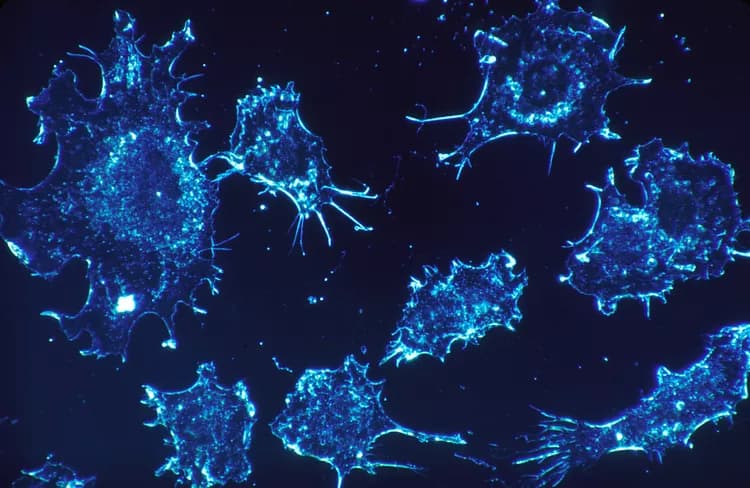
Could Antioxidants Lead To Tumor Metastasis In Melanoma?
A new research study from Sahlgrenska Academy at University of Gothenburg, Sweden, found that antioxidants doubled the rate of metastasis of malignant melanoma in mice, as well as cultured human melanoma cell lines. This follows on the heels of their finding earlier that antioxidants speeded the progression of lung cancers in mice and questions the wisdom of taking antioxidant supplements.
Antioxidants are substances that reduce oxidation and stabilize free radicals in our bodies. Free radicals are generated by routine physiological processes and when left unbalanced, could lead to oxidative stress. Free radicals such as reactive oxygen species (ROS) are known to trigger a number of human diseases, and it is no surprise that antioxidant supplements have flooded the market.
The consensus seems to be that antioxidant supplements do the world of good. Healthy individuals have been reported taking antioxidant supplements for preventing disease like cancer. Patients who suffer from cancer also reportedly use antioxidant supplements as a form of therapy. However, previous and ongoing research shows conflicting findings of the use of such supplements.
In fact, the research group led by Dr. Bergo previously established that antioxidants accelerate lung cancer progression in mice. Since melanoma is a fast growing cancer and sensitive to the oxidative stress in cells, Dr. Bergo’s team investigated the effects of two antioxidants on mouse melanoma and human melanoma cell lines in the study being discussed here. The antioxidants used in the study were N-acetylcysteine (NAC) and a soluble vitamin E analog (Trolox).
The results of the investigation in both mice suffering from melanoma and human melanoma cell lines show that:
- NAC increased the number of lymph node metastasis, as well as the proportion of tumor cells in each lymph node.
- NAC did not have any effect on the number and size of tumors.
- NAC treatment of human melanoma cells led to an increase in their invasive and migratory properties, without increasing their number significantly (proliferation).
- Treatment of human melanoma cell lines with Trolox also increased their invasive properties without increasing their proliferation.
- The antioxidants used in the study thus promote cancer progression in two different ways.
It has to be emphasized here that the findings with human melanoma are with cell culture and not actual patients. In this regard, the authors state, “….we do not yet know whether Trolox or vitamin E would increase metastasis in vivo, although it would not be far-fetched to hypothesize that they would.” Therefore, the authors warn, “…our finding of increased metastasis suggests that cancer patients should use antioxidant supplements with caution.”
However, more research is severely needed, according to the senior author of the study, Dr. Bergo. Speaking with University of Gothenburg News, he says, “We are testing whether antioxidants applied directly to malignant melanoma cells in mice hasten the progression of cancer in the same way as their dietary counterparts.” He further states, “Granted that lung cancer is the most common form of the disease and melanoma is expanding fastest, other forms of cancer and types of antioxidants need to be considered if we want to make a fully informed assessment of the role that free radicals and antioxidants play in the process of cancer progression.”
Written by Mangala Sarkar, Ph.D.
Primary References
Gal, K., Ibrahim, M., Wiel, C., Sayin, V., Akula, M., Karlsson, C., . . . Bergo, M. (2015). Antioxidants can increase melanoma metastasis in mice. Science Translational Medicine, 7(308), 308re8-308re8.
Antioxidants cause malignant melanoma to metastasize faster. (n.d.). Retrieved October 14, 2015, from http://www.gu.se/english/about_the_university/news-calendar/News_detail//antioxidants-cause-malignant-melanoma-to-metastasize-faster.cid1326572
DoveMed Resources
Lung Cancer. (n.d.). Retrieved October 14, 2015, from http://www.dovemed.com/lung-cancer/
Metastatic Melanoma. (n.d.). Retrieved October 14, 2015, from http://www.dovemed.com/metastatic-melanoma/
Additional References
Sayin, V., Ibrahim, M., Larsson, E., Nilsson, J., Lindahl, P., & Bergo, M. (2014). Antioxidants Accelerate Lung Cancer Progression in Mice. Science Translational Medicine, 6(221), 221ra15-221ra15.
Lobo, V., Patil, A., Phatak, A., & Chandra, N. (2010). Free radicals, antioxidants and functional foods: Impact on human health. Pharmacognosy Reviews Phcog Rev, 4(8), 118-126.
Related Articles
Test Your Knowledge
Asked by users
Related Centers
Related Specialties
Related Physicians
Related Procedures
Related Resources
Join DoveHubs
and connect with fellow professionals

0 Comments
Please log in to post a comment.